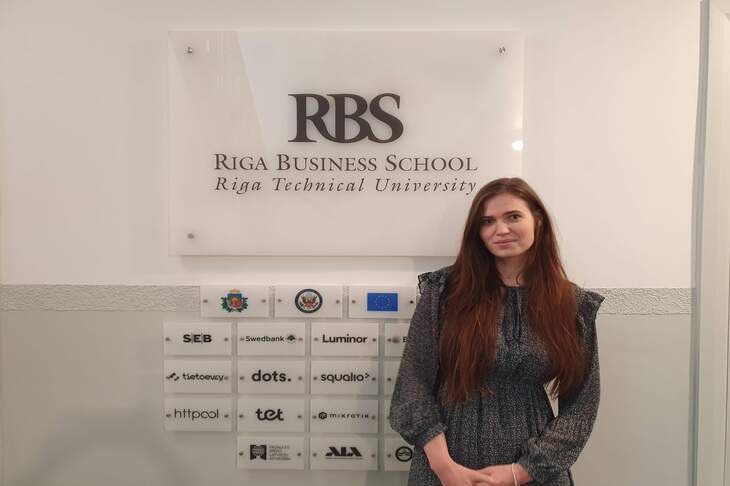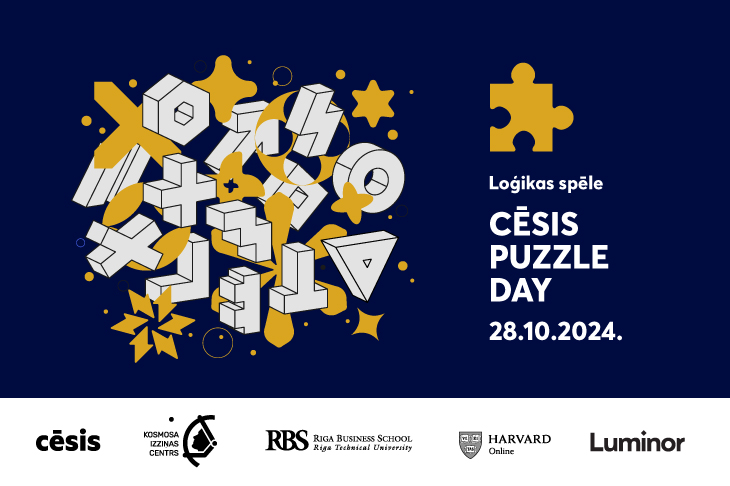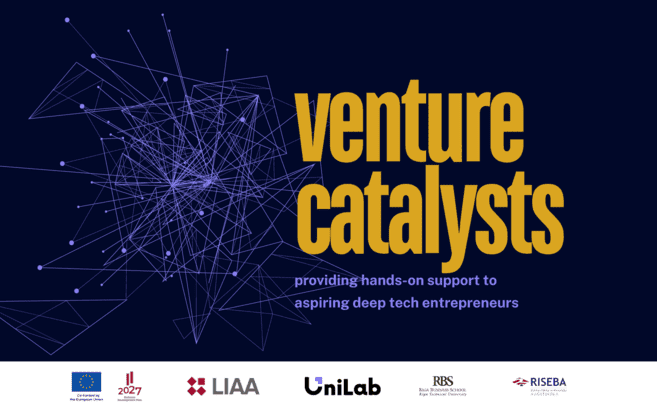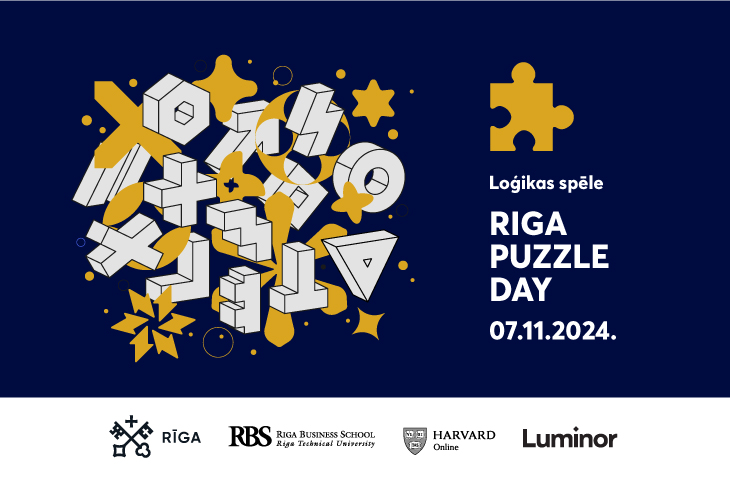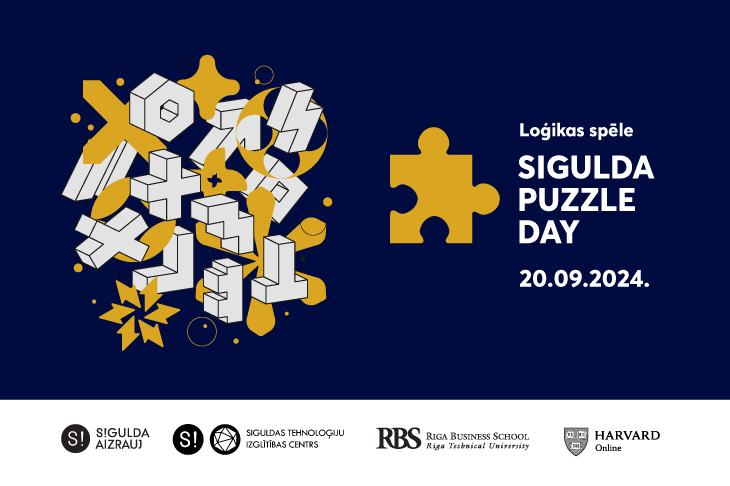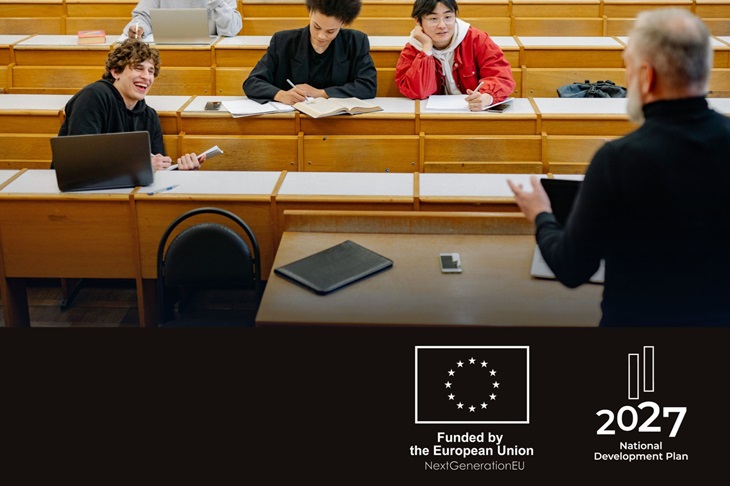Eliza Gulbe is a socially active, energetic and academically powerful young woman, who is a third-year student at Riga Business School’s Bachelor of IT Leadership programme. Eliza combines her studies with work at the Latvian education technology start-up Edurio, where she works as a Business Operations Specialist, coordinates social projects to support the integration of Ukrainian refugees into Latvian society and manages the Riga Business School Ambassador Programme, which aims to inspire young people to choose a high-quality and international education here in Latvia. In the interview, Eliza talks about her daily life at Riga Business School and describes what it is like to be a woman working in the IT and technology sector.
What do you think is the role of education in building a successful career?
Education gives you a solid foundation for a career. I have worked in various jobs during my studies and what Riga Business School has given me is a wide perspective on various processes. I can ‘jump in’ on any task and I will have basic knowledge of a broad spectrum. This is useful both at my current job and when I work as a programmer. I also really value Riga Business School for its connections. I’ve been involved in a lot of interesting projects, and if I need something at work, I always know who to talk to.
How did you decide to pursue the Bachelor of IT Leadership at Riga Business School?
I first heard about Riga Business School in the 11th grade. I took the opportunity to take part in a project where I trialled the studies (currently the Greenhouse programme). Before that, I had not thought of studying anything related to business. In high school, I didn’t know what to study for a long time, so I took part in the Young Doctors Academy, the Young Chemists programme and others, to see what I was good at. During the Riga Business School trial programme, I enjoyed the internal community and I liked the fact that the lecturers were very friendly and open. Riga Business School is all about “energy” – students are encouraged to try new things, to grow. The other thing is entrepreneurship and innovation – the university itself is trying to innovate education, for example, by offering the possibility to obtain a double degree. I chose the Bachelor of IT Leadership programme because I love maths, technology, and digitalisation. It was a great decision.
How would you describe the study process?
It’s a major self-investment, as the Bachelor of IT Leadership Programme has high demands. Especially in the first two years, I invested a lot in my education, which I don’t regret at all because now it helps me so much in my current job and in the projects I create. I like the fact that there are a lot of projects involved in the study process, where you can develop different ideas. For example, this semester we are developing a business idea for a robot/waiter, in another subject I am exploring how to make visualizations more inclusive for people who are colourblind. In almost every subject, including programming, there are tasks on real projects that are tackled within a team. Riga Business School provides a global education right here, in Latvia. Additionally, our teachers are inspired by courses at the University at Buffalo, MIT, for example – some of our courses are the same as theirs.
Unfortunately, there are very few women studying and working in IT in Latvia. What made you choose this field?
This is a question I think about every day. There are only four girls out of 25 people on my course. In primary school, I was also trapped by “stereotypes” – I felt that IT was not interesting and that it was a male-dominated industry. In secondary school, I didn’t know what I wanted to do in the future, so I started looking at a lot of different fields. I liked maths, but I didn’t want to study only maths. As I realised that I was also interested in technology, I decided that it was worth trying to learn to program on my own. There are so many online courses available nowadays. After these courses, I realised that I liked programming. Unfortunately, sometimes in high school, the perception of programming and the IT industry, in general, is distorted because the information surrounding the possibilities within the industry is not demonstrated well enough. I try to encourage other girls to choose IT because diversity is key to innovation.
How would you describe working in IT? What are the most exciting or challenging parts?
The IT industry is very broad – there is a big difference between positions such as programmer, product manager or tester. I think the most exciting thing is that you get to work on products that are innovative and help improve people’s lives. For me, the purpose of any product and its added value, are key. The challenging part, of course, is that the industry is continually changing. For example, chatGPT has become popular now – you have to be able to take advantage of the opportunities that such new technologies bring for the development of other products. Another challenge for me as a woman is that, unfortunately, there are not many women in the industry at the moment. I would like to see the stereotype that the IT industry is only for men eradicated in the Baltics. I know many girls who would be interested and capable to work in IT, but they are scared because of the huge imbalance between the representation of men and women within the industry. It is great to see that this is slowly changing through projects such as RigaTechGirls.
What are your nearest future goals?
I would like to get more experience at Edurio as it is a very good example of a Latvian start-up with a valuable mission. I want to learn more about how startups work and innovate – Edurio is the perfect place to learn these things. Of course, I also need to finish my studies at Riga Business School. In the future, I want to get a Master’s degree abroad and possibly start my own company in the education technology sector, because education is my calling.
